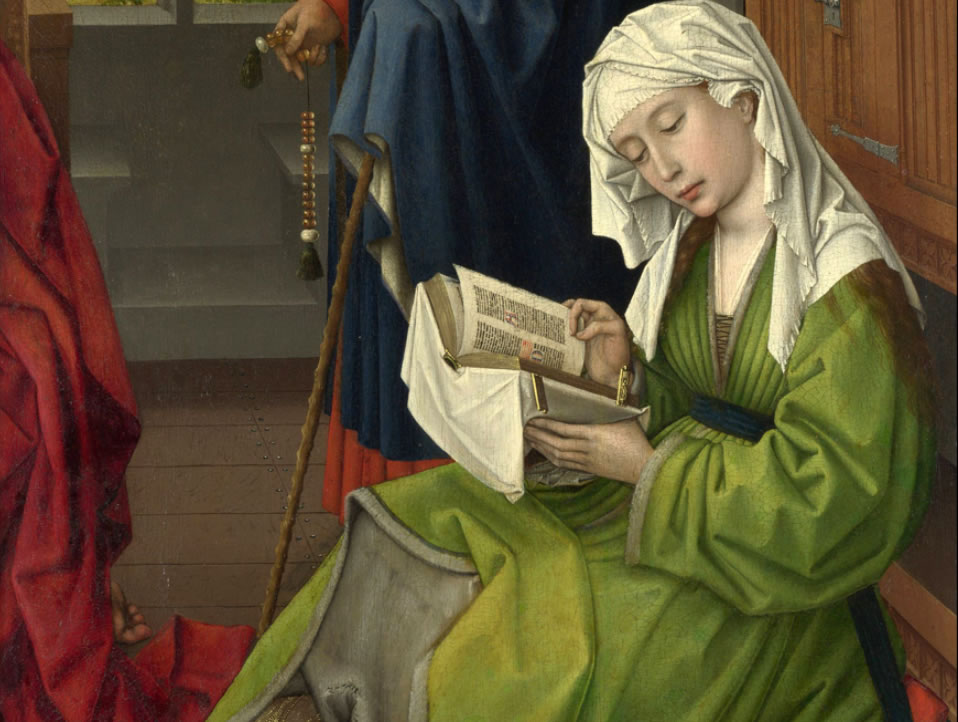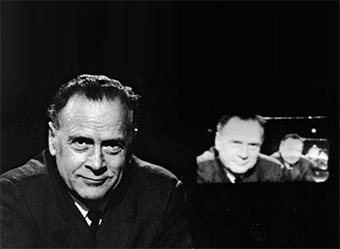The Global Village

Concurrent with the rise of modern Western culture (humanism, science, democracy, industrialization, capitalism) were three distinct revolutions in what we have come to call media - the ways humans communicate ideas (and other things) to those who are not physically present. There were really many revolutions, but the three most important changes can be quickly characterized by using the three most common media: books, television, the Internet. This lesson looks at the effect of this ever expanding media technology on one aspect of human life: our sense of reality.
Is it "obvious" that more, faster, more sophisticated technology brings us closer to an understanding of and relationship to reality? Or have we been drifting further from that since the invention of printing? Or perhaps a bit of both? Much of the rest of this class examines whether our increasingly technology-mediated experiences are more or less "real," and whether or not that should matter to us.
Book People
The first big change came before the Industrial Revolution and no doubt contributed to it: the printing press. 500 years ago, the typical European (or early European settler in North America) couldn't read or write and most people had no access to the scarce manuscripts that recorded human history, myth, religion, and poetry even if they could read. The printing press made mass reproduction of books and newspapers possible, and led indirectly to the Protestant Reformation in Christian Europe, the end of absolute monarchies and birth of democracy, the Scientific Revolution, and many other things we take for granted today. Gradually over the next few centuries more and more ordinary people became literate and more and more diverse ideas spread among them through books, newspapers, letters, and so on.
 Euro-Americans gradually moved from a largely oral culture in which most people could neither read nor write to an increasingly literate culture. As we did so, we lost the relative immediacy of a life in which you can't read or write. Reading is an alternative to embodied socializing, a parallel form of connection.
Euro-Americans gradually moved from a largely oral culture in which most people could neither read nor write to an increasingly literate culture. As we did so, we lost the relative immediacy of a life in which you can't read or write. Reading is an alternative to embodied socializing, a parallel form of connection.
I personally like to argue that, contrary to common supposition, virtual reality wasn't invented with video games or computer simulations. I'd like to suggest that those who lived during the heyday of print culture had their own brand of virtual reality: private reading.
Reading was a form of vicarious experience, and a deep communion with the mind of a single other human being (the author). I'll come back to this in the lesson on Intelligence, but for now I'll just mention that many people who study culture argue that the focused private reading that took place before the 20th century (and in this course) tended to create a certain kind of human being: individualistic, reflective, rational, and empathetic. And that this may have been a better kind of person to have as your fellow citizen (debateable, but worth considering). But of course reading also provided an imaginary escape from embodied physical reality, from thinking about the state of the real world, and from responsible socializing with others. It was an escape from "the real world" (embodied social experience) into a virtual "reality."
Listeners and viewers
With the development of electronic media in the 20th century - the telephone, the radio, sound and video recording, and eventually television - many scholars feel we entered a new - electronic - "Information Age." Instantaneous communication across long distances speeded up the transfer of new information and in many cases the old literacy played no part in the new ways of getting information. Some critics have suggested that this was not all good for humanity - I'll come back to that shortly.
The 20th century saw us move away from books, newspapers, and magazines to recorded and broadcast media: movies, radio, and television. These were now the technologies through which we got our picture of reality (and unreality). By the end of the last century, we also had the Internet. What has been the effect of electronic telecommunications on the typical Canadian's connection to reality, knowledge, and understanding of the world?
Let's start with an optimistic view from a time when the change from most people being informed mainly by reading to more people equally or more being formed by screen time and images was still taking place. In the 1960s, Toronto was actually at the cutting edge of understanding the Information Age that had been emerging throughout the 20th century. The CBC and the National Film Board of Canada were making groundbreaking programs, documentaries, and feature films that often dramatized the inhuman aspects of the new electronic technology against the cold backdrop of Toronto's concrete edifices. And local boy Marshall McLuhan was methodically letting the world know that it had changed.
 McLuhan coined a phrase you have almost certainly heard: The Global Village. This was long before the Internet became a public thing. McLuhan believed that once humanity had invented the forms of electronic telecommunication that allowed almost instant communication across vast distances, the world had already become this Global Village. The telegraph in the 19th century, the telephone at the beginning of the 20th, and the broadcast technologies of radio and television had shrunk the world and brought us all together in a way we had not been since we had lived together in small villages.
McLuhan coined a phrase you have almost certainly heard: The Global Village. This was long before the Internet became a public thing. McLuhan believed that once humanity had invented the forms of electronic telecommunication that allowed almost instant communication across vast distances, the world had already become this Global Village. The telegraph in the 19th century, the telephone at the beginning of the 20th, and the broadcast technologies of radio and television had shrunk the world and brought us all together in a way we had not been since we had lived together in small villages.
As with so much of what McLuhan proclaimed, the Global Village seems prophetic - even truer in our time than it was back in the 1960s when McLuhan was singing its praises. McLuhan is still fascinating to read today.
To get a taste of the world in which McLuhan was coming up with his theories, you might get a kick out of this clip from the "Teenager" episode of the tv series CBC Explorations, originally aired May 18, 1960. The clothes, the haircuts, the pace are from 65 years ago, but many of McLuhan's observations ring prophetically true today. McLuhan starts talking around two and half minutes in, but whole thing is retro fun, and still thought provoking.
McLuhan is talking about the transition from that book world where many people spent a lot of time in private reading. He makes an intriguing distinction between "the adolescent" of the past - a young person coming of age and finding themself through introspection and private reading - and "the teenager" of his day, who wants to be part of the "in" crowd and who cares less about finding themself than about finding their place in the social structure - largely by watching tv and listening to the radio, and then talking about the media with peers.
"With it." thanks to broadcast media
Here's the part of the interview where McLuhan talks about the distinction he sees between the "book man" of the past and "mass media man" of 1960:
I think the best distinction, Alan, might be found in the phrase “with it.” You know how we speak of being “with it”? Meaning we've understood completely. We've got the message, as it were, in every way possible. But in the older book or print culture people were not with it; they were away from it, by themselves, with their own private point of view. Now, you have no point of view when you're “with it” because you accept things totally. And we're “with it” because these new media of ours […] have made our world into a single unit. The world is now like a continually sounding tribal drum, where everybody gets the message all the time. A princess gets married in England. And boom boom boom go the drums. We all hear about it. An earthquake in North Africa. A Hollywood star gets drunk. Away go the drums again. I use the word tribal. It is probably the key word of this whole half hour. [ … ] I think you'll find everything we observe tonight about the media points in the direction of tribal man. And away from individual man. [ ... ] We're re-tribalising. Involuntarily we're getting rid of individualism. We're in the process of making a tribe.
The "individual" of the past, and the "tribal" participant of today; does this distinction make sense and stand up to careful scrutiny? Is "book man" entirely dead? And was the child of the tv age really "with it" as McLuhan suggests? What exactly were they with?
NEXT